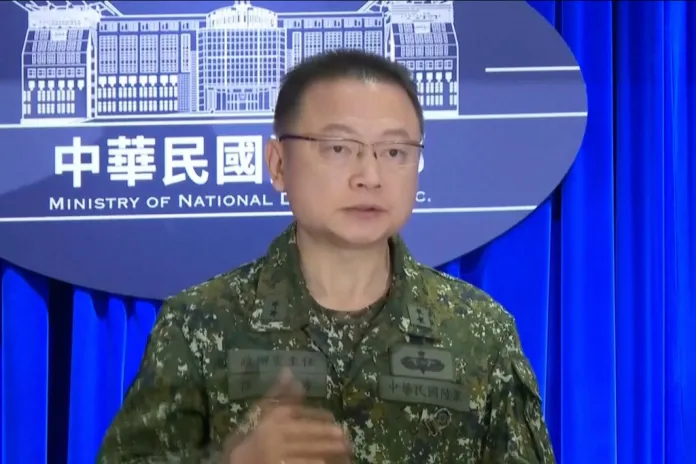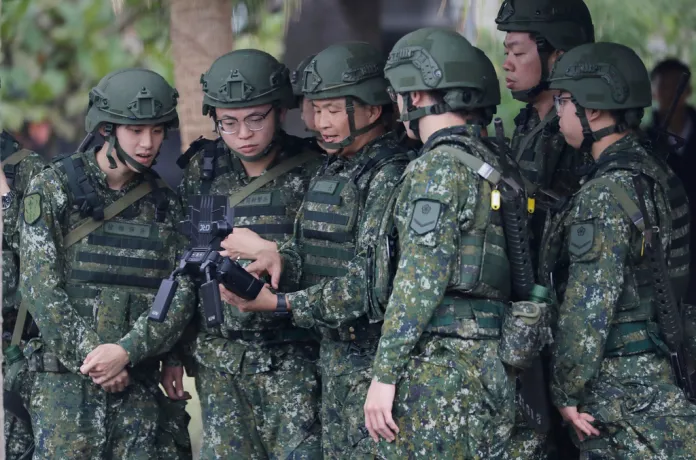China’s influence over Panama Canal has been a US concern for years- Washington Examiner
The article addresses U.S. concerns regarding China’s increasing influence over the Panama Canal, particularly highlighted by recent comments from President-elect Donald Trump. Trump has raised alarms about Chinese manipulation of the canal, suggesting it hampers U.S. interests and security, and has expressed a willingness to use military force if necessary. However, Panama Canal authority leader Ricaurte Vázquez Morales has denied these claims, asserting that there is no Chinese control over the canal’s operations.
The U.S.government’s apprehensions about Chinese activities in the region have grown, especially since Panama established diplomatic ties with China in 2017.Since then, China has become more involved through its Belt and Road Initiative, aimed at enhancing trade and expanding its global influence by investing in infrastructure projects, including ports connected to the canal.
Experts have warned that the canal is a strategic chokepoint, vital for U.S. trade and national security, and any obstruction could have severe repercussions. multiple think tanks,including the Center for Strategic and International Studies,have raised concerns about China’s enhanced presence in the region,urging the U.S. to develop a robust strategy to address this geopolitical challenge. The article concludes by noting that the Chinese Ministry of Foreign Affairs has remained largely silent regarding Trump’s criticisms, framing the canal as a significant asset of Panama.
China influence over Panama Canal has been a US concern for years
President-elect Donald Trump made international headlines this week after refusing to rule out military force to take back the Panama Canal, citing economic and security concerns regarding China.
Trump has made U.S. control of the interoceanic passage a key priority of his second administration — claiming operations of the canal are being illicitly influenced by Chinese interests, which he says are “ripping off” American ships.
Ricaurte Vásquez Morales, the leader of the Panama Canal Authority, has denied China is controlling the trade route.
“The accusations that China is running the Canal are unfounded,” he told the Wall Street Journal. “China has no involvement whatsoever in our operations.”
He said that preferential treatment for China, or the United States, would violate a neutrality treaty and international law, adding, “It will lead to chaos.”
While Trump’s claim that People’s Liberation Army personnel exercise direct authority over the Panama Canal is inaccurate, his broader assertion that China manipulates the use of the passage is a concern that has been touted for years by the U.S. government and independent researchers.
The Panama Canal was the single most expensive construction project in U.S. history at the time, costing approximately $375,000,000 — the equivalent of $15 billion in today’s currency. The U.S. paid $10,000,000 for a perpetual lease of the land surrounding the canal and contributed $250,000 in annual rent.
It was operated entirely by the U.S. government from its opening in 1914 until 1977.
Negotiations and treaty stipulations negotiated under then-President Jimmy Carter slowly ceded control to the Panamanian government until 1999, when full control was turned over.
The rapid growth of Chinese influence in the canal began in 2017, the year that then-President Juan Carlos Varela cut ties with Taiwan and instead recognized the People’s Republic of China on the mainland.
Taiwan decried the shocking geopolitical decision as cynical “checkbook diplomacy with the Beijing authorities” done for “economic gain.”
Panama was made the first Latin American partner of the Chinese Communist Party’s Belt and Road Initiative in 2018.
The Belt and Road Initiative is a long-term, international project of the Chinese government to facilitate easier global trade, expand CCP influence in foreign nations, and increase Chinese cultural exports.
The initiative frequently targets developing and impoverished nations for heavy investment, promising assistance in bolstering concrete infrastructure in exchange for structured repayment. The arrangement significantly increases the power of the Chinese yuan and centers mainland China as a hub of international development and political power.
CK Hutchison Holdings, a firm based in CCP-controlled Hong Kong, operates ports at the canal’s entrances — an arrangement that puts it in a position to collect data and intelligence on U.S. vessels using the passage.
These developments have not gone unnoticed by the U.S. government.
The House Foreign Affairs Committee published in 2022 a “regional snapshot” of growing Chinese influence in Central America, which pointed directly to the Panama Canal as a hot spot for CCP investment.
In the snapshot, the committee warned that “China is increasing its strategic influence over the Panama Canal through various infrastructure projects and a Chinese-backed consortium controls ports on both ends of the canal.”
“Advancements by Chinese state-owned shipping companies, investment groups, and construction companies in projects around the Panama Canal threaten to further expand China’s influence over the canal’s operations at the expense of Panama’s sovereignty and democratic institutions,” the committee document stated.
Officials from U.S. Southern Command testified to the Senate Armed Services Committee in 2022 that the possibility of restrictions on passage through the Panama Canal is a significant concern.
Experts warn that the canal is a global strategic chokepoint that could severely disrupt U.S. trade and strategic mobility if passage is obstructed or hindered.
Think tanks have raised the alarm about the implications of continued Chinese influence over the canal for years.
The Center for Strategic and International Studies found in 2021 that the Panama Canal was becoming “a flashpoint for U.S.-China competition over spheres of influence.”
“Chinese companies have been heavily involved in infrastructure-related contracts in and around the Canal in Panama’s logistics, electricity, and construction sectors,” the CSIS claimed. “These projects fit naturally with China’s BRI vision, onto which Panama was the first Latin American country to sign in 2018. This, along with Panama’s recognition of China, boosted China’s already existent footprint in the Canal.”
The Heritage Foundation warned in a 2023 paper that Chinese encroachment into Latin America presented ample threat of surveillance, intelligence gathering, and obstruction to U.S. interests.
“From the Panama Canal to military exercises, China is now a major player in America’s backyard,” the Heritage Foundation wrote. “The U.S. needs to get serious about establishing and resourcing an Atlantic Strategy.”
The Chinese Ministry of Foreign Affairs has been unusually quiet regarding Trump’s complaints. The last time it addressed the matter was during a press conference in December when prompted by a journalist from EFE News Agency.
“The Panama Canal is a great creation of the people of Panama. It is a golden waterway for connectivity among countries,” ministry spokeswoman Mao Ning told the press. “China has always supported the people of Panama in their just cause for sovereignty over the Canal. Dating back to the 1960s, large-scale demonstrations took place across China, which had been vocal in supporting the people of Panama in their struggle to regain their sovereignty over the area of the Canal.”
“China will as always respect Panama’s sovereignty over the Canal and recognize the Canal as a permanently neutral international waterway. We believe the Canal will continue to make new contributions to facilitating integration and exchanges between people of different countries and enhancing humanity’s well-being,” she continued:
TRUMP WON’T RULE OUT MILITARY FORCE TO TAKE PANAMA CANAL AND GREENLAND
China remains the second-largest user of the Panama Canal behind the U.S., and its exceptionally friendly relationship with the Panamanian government remains a key asset for the Belt and Road Initiative.
More than a dozen Latin American countries have signed onto the Belt and Road Initiative after Panama, and Chinese influence in Central and South America continues to grow.
Some Republican lawmakers have taken Trump’s stated goals quite seriously — beginning the process of authorizing the incoming president to bring the issue to the international level.
Rep. Dusty Johnson (R-SD) introduced a bill on Wednesday that would grant Trump the ability to negotiate “for the reacquisition of the Panama Canal from the Republic of Panama.”
The bill would require Trump to report “potential outcomes” or “anticipated outcomes” to Congress.
“President Trump is right to consider repurchasing the Panama Canal,” Johnson said. “China’s interest in and presence around the canal is a cause for concern. America must project strength abroad — owning and operating the Panama Canal might be an important step towards a stronger America and a more secure globe.”
Johnson’s bill boasts 15 co-sponsors from the Republican Party, but Democrats have bemoaned Trump’s preinauguration musings.
“House Democrats believe that we are not sent to Washington to invade Greenland, rename the Gulf of Mexico, or seize the Panama Canal by force,” House Minority Leader Hakeem Jeffries (D-NY) told reporters Wednesday, referring to other suggestions by Trump to take control of Greenland and rename the Gulf of Mexico the “Gulf of America.”
" Conservative News Daily does not always share or support the views and opinions expressed here; they are just those of the writer."




